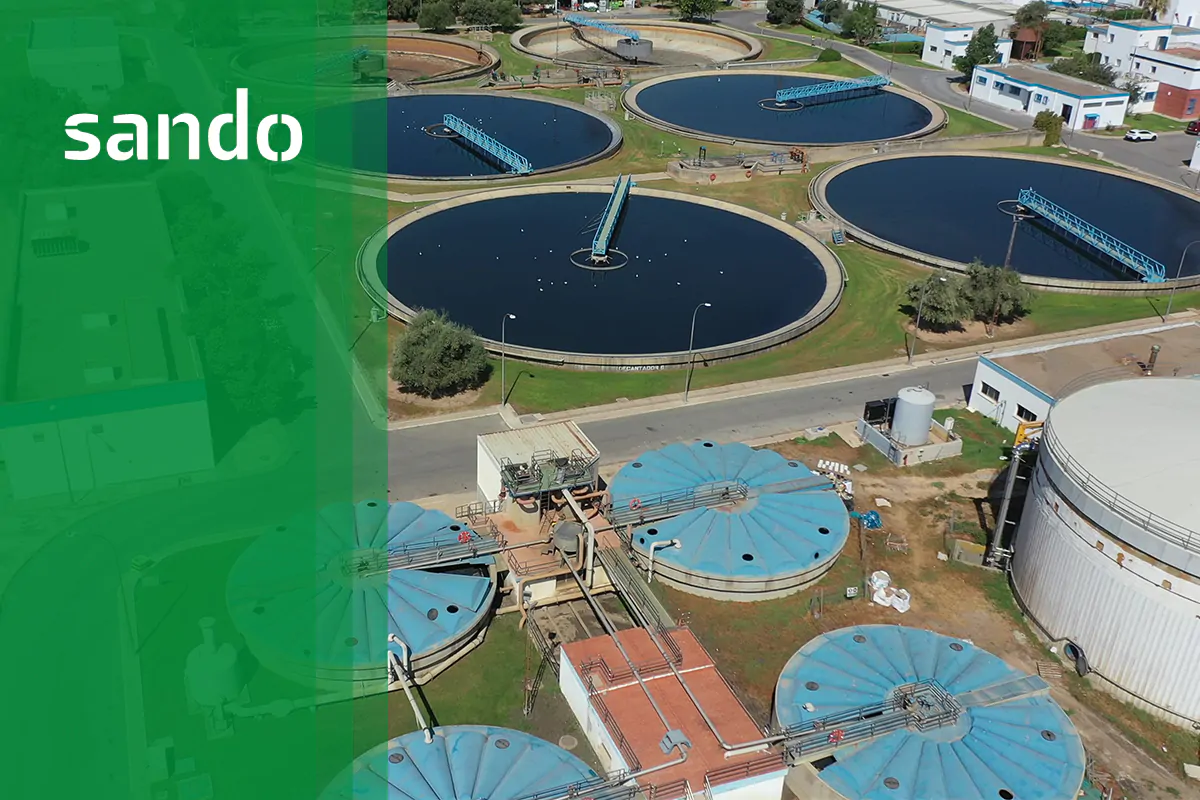
26/10/2023
Sando, together with Sando Agua, is developing, through an R&D&I project financed by CTA (Technological Corporation of Andalusia), a system that uses Artificial Intelligence (AI) for the predictive maintenance of critical components of urban wastewater treatment plants (WWTP).
In the project, called PREDICTEDAR, the company Facsa and the research group TEP-190 of Engineering and Infrastructures of the Universidad de Granada (UGR), have collaborated, so the University-Company technology transfer has been important.
The technical manager of the Building and Civil Engineering sector at CTA, Carlos García, explains that “the project aimed to design and validate an intelligent predictive maintenance system for the critical components of urban wastewater treatment plants based on AI tools”. He added that “the system developed by Sando will represent a breakthrough in the sector by applying technologies used in advanced and technology-intensive manufacturing sectors at the forefront of these lines of innovation”.
For his part, Sando’s Head of Innovation, Juan Antonio Báez, says that thanks to CTA’s support, we are again applying Artificial Intelligence to another project. With PREDICTEDAR, we can minimise operational risks and unforeseen events, reduce needs and costs, study the main technical constraints, and even increase the insufficiency ratios of a WWTP. We favour the circular economy, and we will reduce consumption.
The system developed in the PREDICTEDAR project will prevent unplanned shutdowns of the plant and its critical subsystems, avoiding service interruptions and discharges of insufficiently treated water into the environment. In addition, it will minimise the need and associated cost of Waste disposal (sludge and sludge) because it will be recovered.
In this way, the technology developed by Sando will enhance the circular economy and the sustainable use of resources, as it will optimise the use of sludge as agricultural fertiliser by increasing the reliability and availability of the associated subsystem.
The system also reduces energy consumption and increases the self-sufficiency ratios of a WWTP, as it maximises the operating times of the treatment plants, reducing the hydrolysis time, which is a costly process in terms of energy.
This project has also enabled Sando to strengthen its R&D&I activities, based on the development of new products and services that anticipate the technological needs of its customers and are perceived as having high added value. As a result, Sando Agua can offer water cycle management companies the opportunity to position themselves at the technological forefront of intelligent WWTP systems.
Sando is a multinational company dedicated to the construction of sustainable infrastructuresand the management of services. Highly committed to the environment and innovation, it carries out works and manages services for its clients that preserve the environment and improve people’s quality of life. Sando Agua is a group company dedicated to the design, construction, maintenance, upkeep and operation of infrastructures related to all phases of the water cycle.
Sando has been a member of CTA since its foundation. It has carried out many R&D&I projects financed by this Foundation, carried out directly by the construction group and some of its subsidiaries. These have made it a technological benchmark in its sector and helped it become more competitive.
CTA is a private foundation with more than 170 member companies and 18 years of experience, initially promoted by the Andalusian Regional Government, privately managed and dedicated to promoting regional R&D&I and technology transfer.
CTA is a cluster that helps companies plan an innovation strategy, from identifying their R&D&I needs to formulating projects to solve them or searching for partners and the necessary funding to carry them out. In addition, it has deployed a series of services to help companies, universities, technology centres, government and other entities transform the results achieved into wealth and business. It is also increasingly active internationally, having participated in more than 45 international projects, both EU and multilateral-funded, and has collaborated with more than 300 organisations in 35 countries.